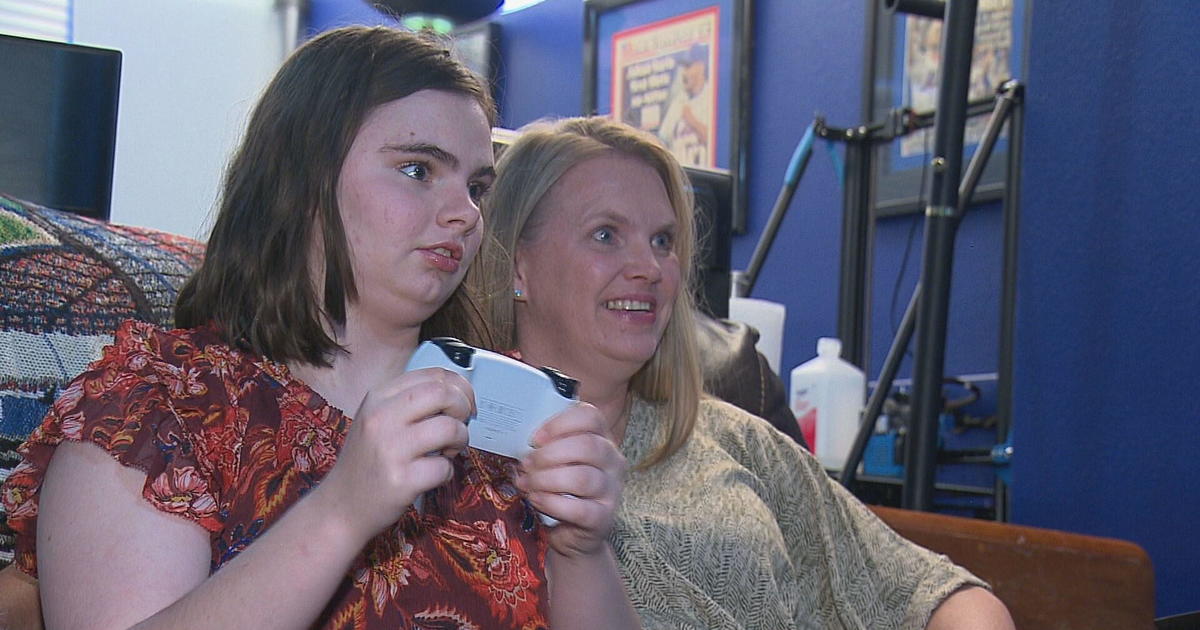Alzheimer's Patient Accused In Lakewood Killing May Never See Trial
DENVER (AP) - The case of an 87-year-old Alzheimer's patient accused in the deadly beating of a fellow assisted living resident highlights the challenges of prosecuting someone with the unpredictable mental disease, experts and lawmakers say.
Homer Castor may never stand trial if doctors determine his dementia makes him unable to aid in his own defense, opening the prospect that he might stay in a state mental hospital indefinitely. He faces a homicide charge in the death of Gerald Propp, 76.
"This is a tough one," said Rep. Beth McCann, a Democratic Colorado state legislator who has studied how laws can be reformed to strike the best balance when mental health and criminal matters meet.
Colorado law calls for defendants found in a mental health examination to be incapable of standing trial to be treated until they are able to assist in their own defense. Judges much check back periodically. If it is determined that a defendant will never be capable of being tried, a judge could order him or her released on conditions that could include being placed in a specialized care facility.
Defendants in similar situations have not been convicted, let alone tried. In Colorado, they cannot be held for evaluation longer than the period of a sentence associated with the crimes they face. Steven Pitt, a forensic psychiatrist who once headed the board in Arizona that makes competency decisions, said some states put a strict, uniform limit on how long a defendant can remain under evaluation.
RELATED: Expert: Alzheimer's Beating In Lakewood Shows Disease's Unpredictability | Police: Alzheimer's Patient, 87, Kills Roommate At Lakewood Facility
Given that Alzheimer's is an irreversible and deteriorating condition, the likelihood of a defendant like Castor "ever being found fully competent to stand trial is very remote," said Pitt, who consults nationally on mental health and the law.
Staff at Atria Applewood in the Denver suburb of Lakewood said Castor's mental illness made him difficult to understand and at times aggressive. Investigators who interviewed him after the Saturday attack had trouble understanding him.
Castor told officers he thought Propp, a fellow Alzheimer's patient, had tried to beat him up in the middle of the night and was pretending to be asleep when he assaulted him, according to a criminal complaint. Castor is due in court March 2 after a judge ordered a competency evaluation at the state hospital in Pueblo.
Pitt said criminal competency questions involving Alzheimer's are rare, adding that he has never encountered one.
'But as our population ages," he added, "sadly, I suspect that we will see more."
McCann, the Colorado legislator, took part in a task force that reviewed the non-criminal, involuntary commitment process in Colorado in 2013. In its final report, the task force said that in such cases when a person's liberty is being curtailed, the scope and duration of the curtailment must be limited. It described the issue as "inherently contentious, as it must balance the rights of individuals with public safety in instances in which these principals are in opposition."
The same concerns are at issue when the process is criminal, McCann said, adding that in the case of an Alzheimer's patient, such questions as whether the state mental hospital is the best place to provide care and how long an evaluation should last have to be addressed.
"Those are all the questions that people who have more expertise in this would have to take on," she said.
- By Donna Bryson, AP Writer
(© Copyright 2015 The Associated Press. All Rights Reserved. This material may not be published, broadcast, rewritten or redistributed.)




